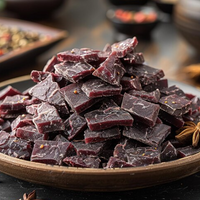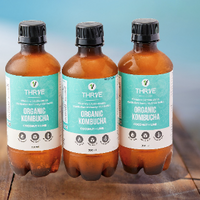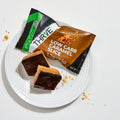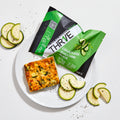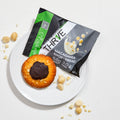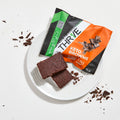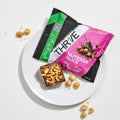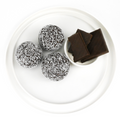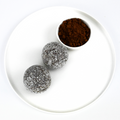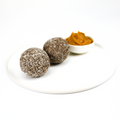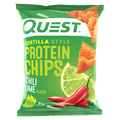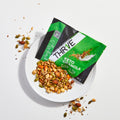It’s the must-have supplement in the Keto set, but what exactly are MCTs and what are the benefits? THR1VE nutritionist Shannon Young shared her complete guide to MCTs with Body & Soul. Read on if you’re curious about how to get the energy-boosting benefits.
 MCTs are definitely in vogue – you’ll find them in everything from superfood smoothies to protein powder. However, unlike some wellness trends (cockroach milk, anyone?), I think MCTs deserve their time in the spotlight. They can give you a pick-me-up that’s far more nutritionally sound than a quick sugar hit. Here’s a basic guide to get you started.
MCTs are definitely in vogue – you’ll find them in everything from superfood smoothies to protein powder. However, unlike some wellness trends (cockroach milk, anyone?), I think MCTs deserve their time in the spotlight. They can give you a pick-me-up that’s far more nutritionally sound than a quick sugar hit. Here’s a basic guide to get you started.
A quick science lesson
MCTs are essentially a type of fat. Fats are made up of chains of fatty acids. MCT stands for medium-chain triglycerides, sometimes referred to as medium-chain fatty acids. There are three types of chains – short, medium and long. The difference between short, medium and longer chain fats is the chemical structure. Short-chain have five or less carbon atoms, medium-chain between six and 12 carbons and long-chain over 12 carbons. I know – it’s like high school chemistry all over again.
Think of these carbons like the building blocks of fats. The fewer amount of carbons the chain has, the quicker the fat is absorbed in the body. While short-chain fatty acids can be found in milk products, they can also be produced from other fats found in your body and aren’t required in the diet. Short-chain fatty acids are produced by the friendly bacteria in your gut.
The majority of fats and oils in our diets are composed of long-chain fatty acids. Both the saturated and unsaturated fat found in meat, milk, eggs and plants are composed of these. Because of the structure of a long chain fatty acid, our body must do some work to process this type of fatty acid before it can be digested and used as energy.
Medium-chain fatty acids contain between six and 12 carbon chains. They are Caproic acid (C6), Caprylic acid (C8), Capric acid (C10) and Lauric acid (C12). Due to the reduced chain length, our bodies can absorb medium-chain fatty acids more easily. This means they can reach the bloodstream quicker and they’re converted into energy in the liver more efficiently. All this translates into more energy, sooner.
MCT oil vs Coconut Oil
If you’re ready to try some MCTs, then there’s a few ways to get them. MCT oil and coconut oil are often used interchangeably, but they’re not the same thing. Coconut oil contains MCTs and MCT oil is often derived from coconut oil – so the confusion is completely understandable!
MCT oil is a concentrated form of MCTs that is usually optimised for quicker absorption. In theory, the shorter the chain, the faster the body can turn essential fatty acids into energy, so many MCT oil supplements are made up of a combination of C8 and C10 with some incorporating C12. These are often extracted from coconut oil, which is why you may see the 100% coconut oil tag on some labels. Despite its short chain length, C6 is less commonly used in the mix because it can be tricky to digest and has a very distinctive taste and smell.
You can also get MCTs from some wholefoods, the most popular of which is coconut oil. Lauric acid or C12 is the main MCT found in coconut oil – although it does contain smaller amounts of the other MCTs. While Lauric acid can’t be converted to energy as quickly, it boasts plenty of health benefits. It has powerful antimicrobial properties and the ability to kill bacteria.
The main difference is the concentration. To compare, there are approximately 2g of MCTs in a teaspoon of coconut oil, compared to 15g in a teaspoon of concentrated MCT oil. Suggested dosage varies from 5-50 grams, so it really depends on your individual needs. If you want a lower dose, you could get that from coconut oil used as part of regular cooking. However, if you want to be at the higher end of 50 grams, you’re going to need a supplement. Of course, wholefood sources of MCT will have other benefits that pure oil can’t provide.
The benefits
Energy is really where the benefits of MCTs lie. Most often, you’ll see MCT oil used for a quick pick-me-up that’s far more nutritious and effective than a sugary soft drink. This is because MCTs break down as fuel in the form of ketones, which can be used immediately by the muscles and organs for energy. MCT oil can also improve focus and mood. It provides a steady supply of fatty acids to the brain that it can use effectively. This means more concentration when you need it most (hello, 11am presentation).
There’s also a gut health benefit to MCTs. They can help restore balance to the good bacteria within your intestines. This assists digestion and promotes the absorption of fat-soluble vitamins such as beta carotene, calcium, vitamin E and magnesium. Emerging studies are also showing promising results around improved cardiovascular health and disease prevention – although research is still in the early stages for this.
How To Use MCT Oil
MCT oil can be really useful if you’re following a keto diet. This is because medium-chain fatty acids can aid the body’s production of ketones, which is what you’re aiming for in a keto or low-carb diet. Some people find it helpful to use these in the transition phase to ketosis in particular. However, if your diet contains complex carbs, there’s no reason why you can’t still enjoy the energy-boosting benefits of MCTs. However, it is worth noting that MCT oil is very energy dense, so you’ll need to factor that in when consuming it.
MCTs are usually enjoyed mixed into drinks. Many brands don’t have a distinctive taste, so you could always just take a teaspoon straight up. You’ll also find MCTs in some protein powders, which can be a really helpful way to refuel after a workout or get a solid snack in between meals.
Of course, it’s essential to do your research to find out if MCT is right for you. Some people really benefit and others may find their diet is doing a good job as is. Regardless, if you need to focus for that afternoon meeting, I’d say a teaspoon of MCT oil is far superior than the office lolly jar.
This story originally appeared on Body & Soul. Read the original article here.

